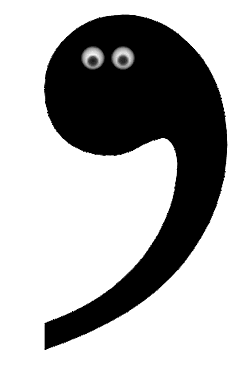
Thanks to https://www.wordsandpics.org/ for the pic
A post about the declining use of the apostrophe, and what, if anything, we should do about it ?
The apostrophe’s death is probably an exaggerated title for this post. After all, many of us love our apostrophes and protect them assiduously. We wince when seeing – “Jakes apple’s, tomatoes’ and banana’s” – wittily called “greengrocers apostrophe’s” . We rush to correct misuse by others. In protest we may even join the Apostrophe Protection Society or support the Plain English Campaign.
Dorset-born writer Peter Viney says that the apostrophe first appeared in an English manuscript in 1559, its original use being to show a missing sound – the omissive apostrophe, such as sha‘n’t (A. A. Milne’s Winnie the Pooh). It was not until the 17th century that it denoted the possessive – e.g. John’s quill. And it’s in its possessive form that confusion reigns, especially when in conflict with its original use. Thus its and it’s. As Viney observes, an apostrophe in a possessive pronoun may be logical, albeit wrong.
To research this post I naturally consulted C.E.M. Joad’s How to Write, Think and Speak Correctly (Oldhams Press 1939). Maybe I missed ‘apostrophes’ in his otherwise comprehensive compendium, but Cyril Joad wasn’t much help in Ch 5: Punctuation, or even Ch 4: Puzzle Corner – where he explains ‘a number of possible sources of error and confusion’, including of course, the most signific – the split infinitive.
However, apostrophes, especially when used in conjunction with inverted commas, can get congested when we attempt to become ambitious with them – “My boss’s friends’ suggestion was that next week’s outing should be from the ship’s fo’c’s’le, one mile’s jog to the 6′ sign at Sainsbury’s in St James’ Park where we will meet with the Jones’s”.
It is not just greengrocers’ and hairdressers’ signs that demonstrate confusion over the apostrophe. Even fanatical adherents to the noble art of punctuation suffer shivers when applying it, checking and re-checking that it has found its correct place, if it should be there at all. Waterstone’s dropped Tim’s apostrophe in 2012. Maybe that was the event that triggered millennials and shopkeepers to shun the apostrophe?
I suppose the real question is – does the apostrophe matter? Are we actually confused by possessive and omissive apostrophes? ‘Twill be interesting to hear your view’s!
Advertisements appearing within or at the foot of this post are placed by the platform, not the writer. They are neither endorsed nor monetarised.
*
*
*
*
Have to admit I’m an apostrophe pedant. There’s a man in Bristol who goes around correcting bad punctuation on Bristol shop fronts. He has my utmost admiration. https://www.bbc.co.uk/news/av/uk-39459831
LikeLiked by 2 people
Don’t worry – you’ll love it! Probably the most authoritative (and best) explanation of the apostrophe https://www.apostrophe.org.uk/post/butter-no-parsnips
LikeLike